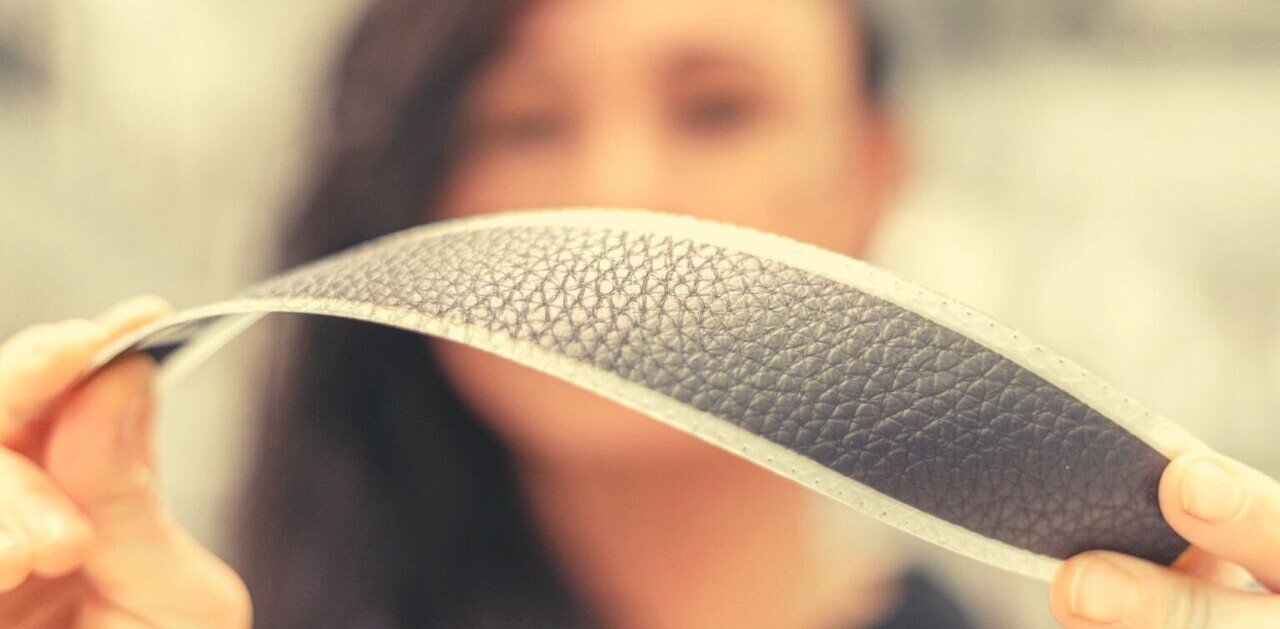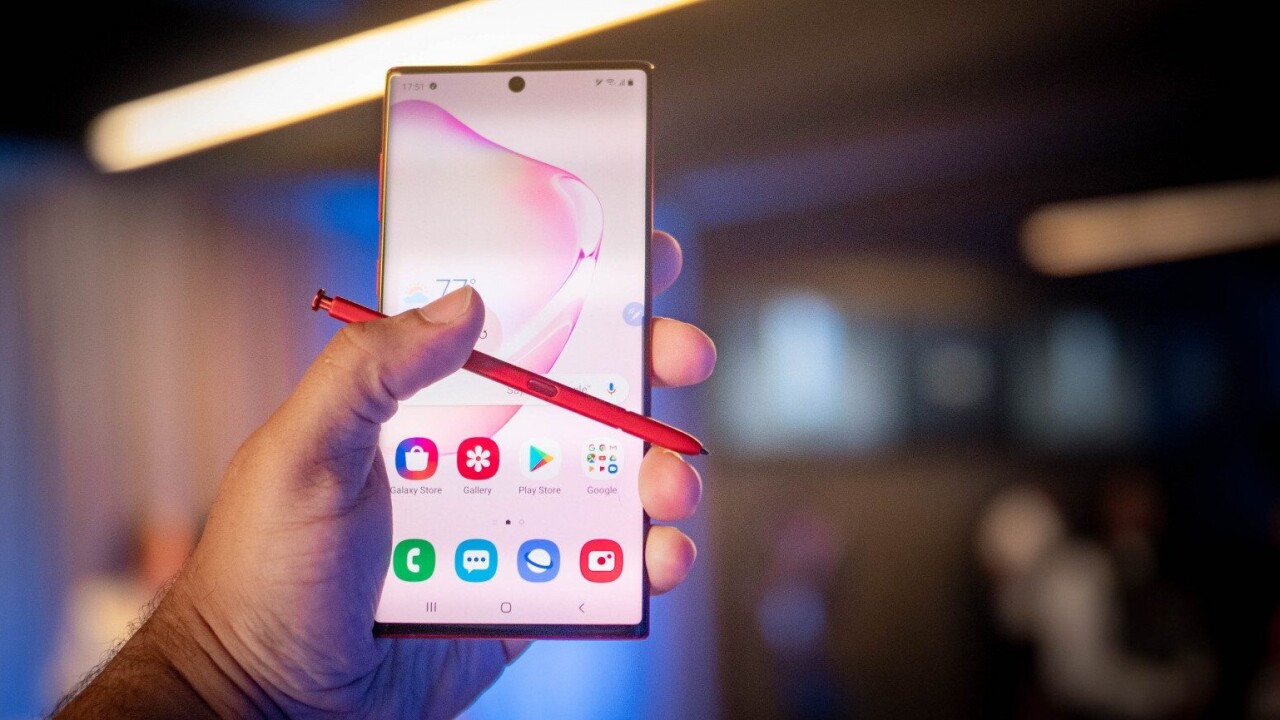
- Product
- Galaxy Note 10
- Price
- $950+
In case you haven’t heard Samsung revealed the Galaxy Note 10 yesterday – or rather, the Note 10 and Note 10+. By splitting the lineup into two sizes, Samsung was able to make one of its boldest choices since it introduced the original Note in 2011: it actually made the newest Note’s screen a bit smaller.
I had a chance to spend some time with both devices during Samsung’s Unpacked event. If you want more detailed coverage of the basic specs and features, you can check out our announcement post here. This post is simply a collection of some thoughts after using the phones for a few minutes.
My very first impression was “I want the smaller model.” The 6.3-inch panel may make it seem the phone isn’t much smaller than last year’s 6.4-inch Note 9, but in practice, the sliver-thin bezels mean the Note 10 is refreshingly small.
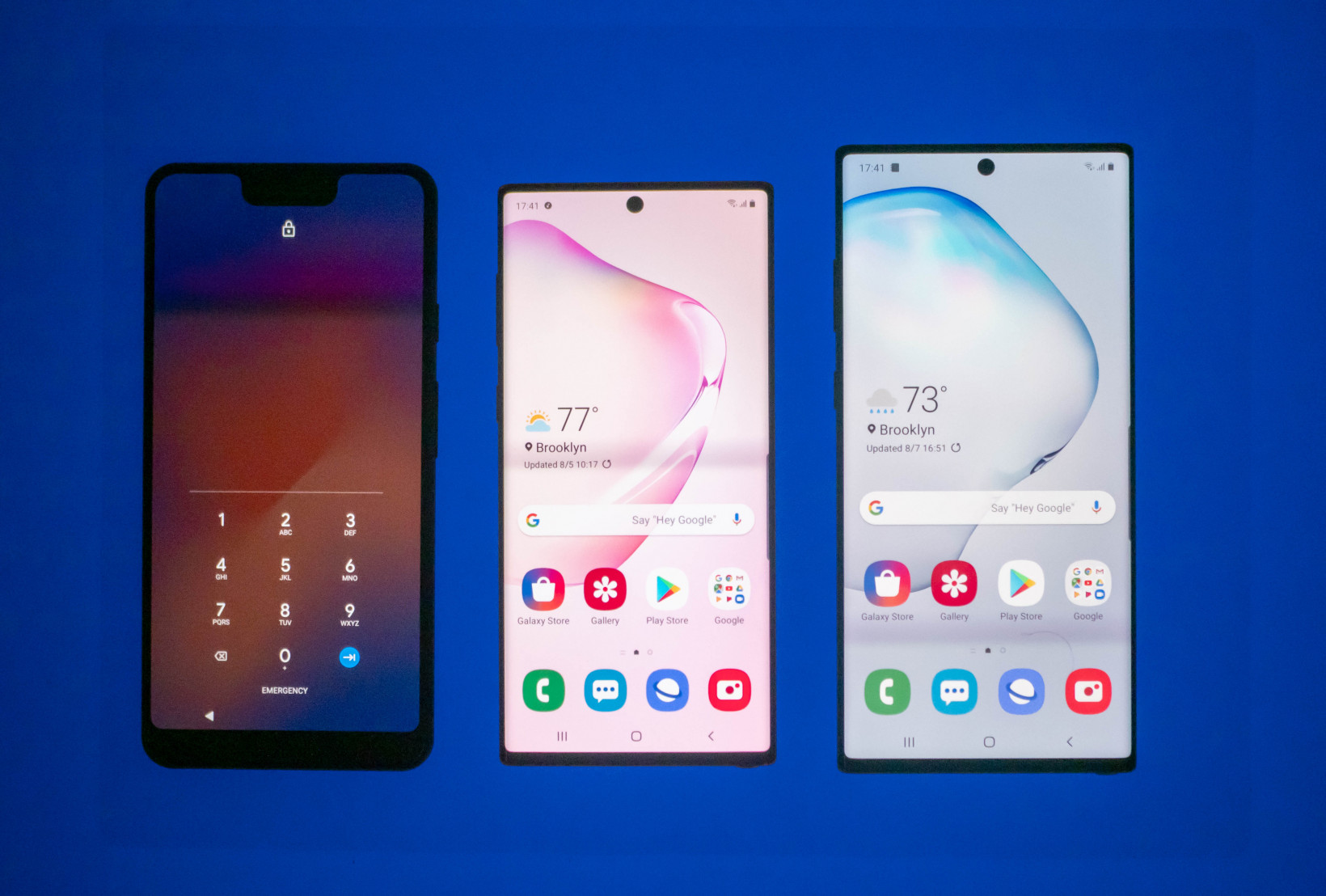
For reference, that’s about the same width and thickness as an iPhone Xs and significantly smaller than the Pixel 3 XL, the latter which also has a 6.3-inch panel (albeit one housing an atrocious notch). It makes for a noticeably better one-handed experience than I’m used to from Note devices. The 6.8-inch Note 10+, meanwhile, is nearly identical in size to Note 9 while housing a significantly larger screen.
Aesthetically, the phones are a slight evolution of Samsung’s design language – it’s still very much a glass sandwich. The only notable difference is that the camera module is shaped like a capsule rather than a squircle, which looks generically similar to the rear setup you’ll see on Huawei phones and iPhones. But at least the hardware feels as nice as ever.
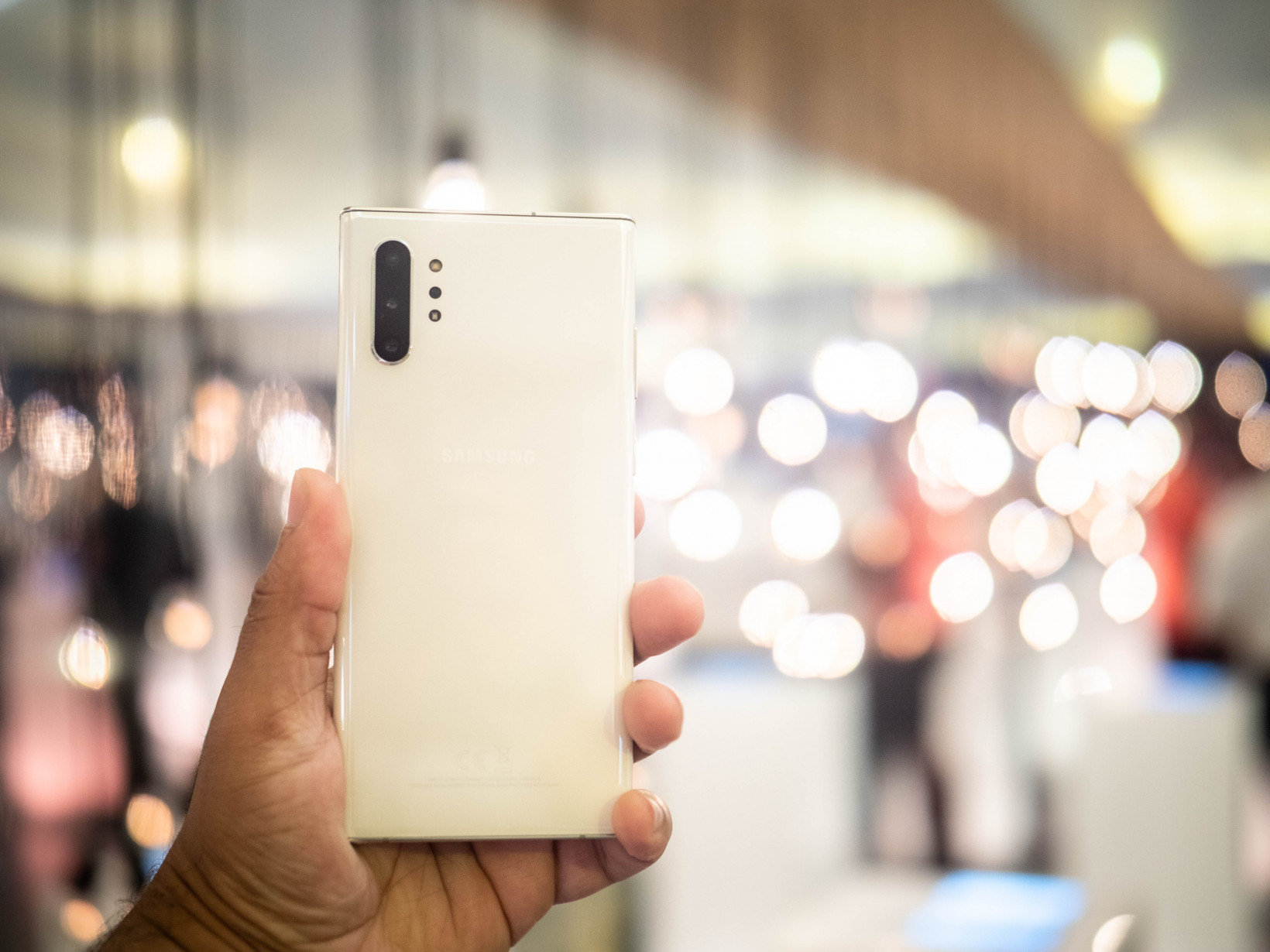
As usual, the Note 10 packs the strongest specs on Samsung’s lineup, with the latest Qualcomm/Exynos processor, 8 or 12GB of RAM, and 256 or 512GB of storage. But the Note is far from the only phone with beastly specs nowadays – in fact, they’re not necessarily better than something like the far cheaper OnePlus 7 Pro. And in any case, smartphone specs offer diminishing returns by the year. So while top-notch specs are still part of the equation, Samsung has to lean more heavily on its software and features to differentiate itself. It’s a good thing then that Samsung has one thing no-one else has: The S Pen.
It’s really the star of the show this time around, packed with features in an attempt to prevent it from never leaving its slot. Notably, the S Pen now comes with a motion sensor that allows you to perform air gestures with a flick of your wrist. If you’re in the YouTube app, for example, you can hold down the button and flick upwards to change the volume, or flick left to go to the next video. In the camera app, a swirly motion lets you zoom in and out, while swipes let you switch between camera modes.
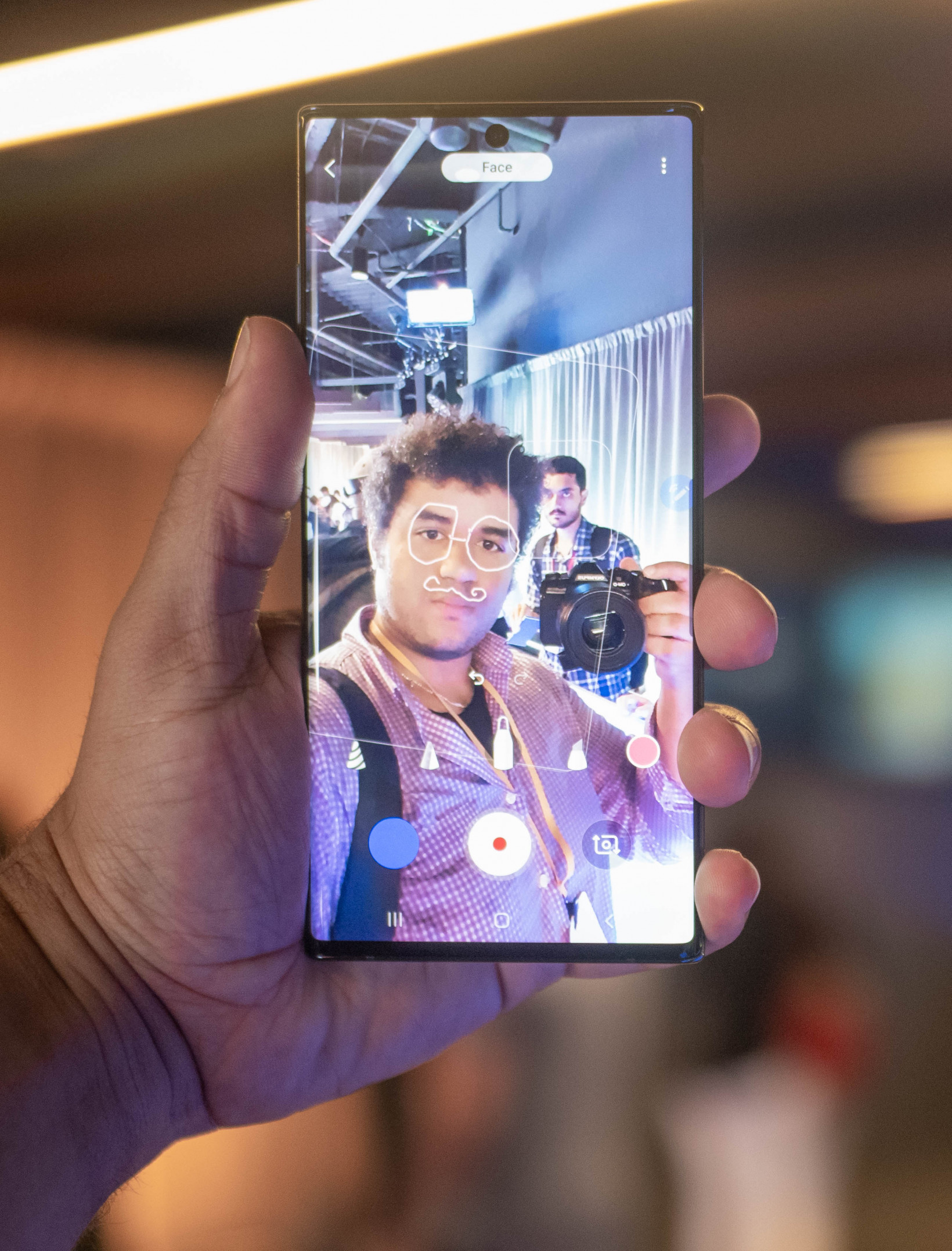
How much you’ll actually end up using these features is a different matter. I’m not sure how often people will want to use the Note 10 from such a distance that they’d need the S Pen’s remote controls. Nonetheless, they were easy to learn and reliably consistent in my time with the device, plus Samsung is opening an SDK for developers to incorporate the feature into their own apps. It’s at least a cool party trick.
I also spent some time checking out the camera. While the dark venue wasn’t suitable for testing if Samsung’s made meaningful improvements to image quality, I did try the new-depth sensing effects for video. Samsung made a big deal of this – it’s basically like portrait mode for video – and it was pretty neat to see it in action.
But it was also clear that at this stage, shallow depth-of-field in video is more of a casual effect than something that might trick someone into thinking you were filming with a professional camera. Edge artifacts were clearly visible around a subject, and it seems to only work on people for now. My favorite effect was one that made everything look like a 3D film VCR tape.
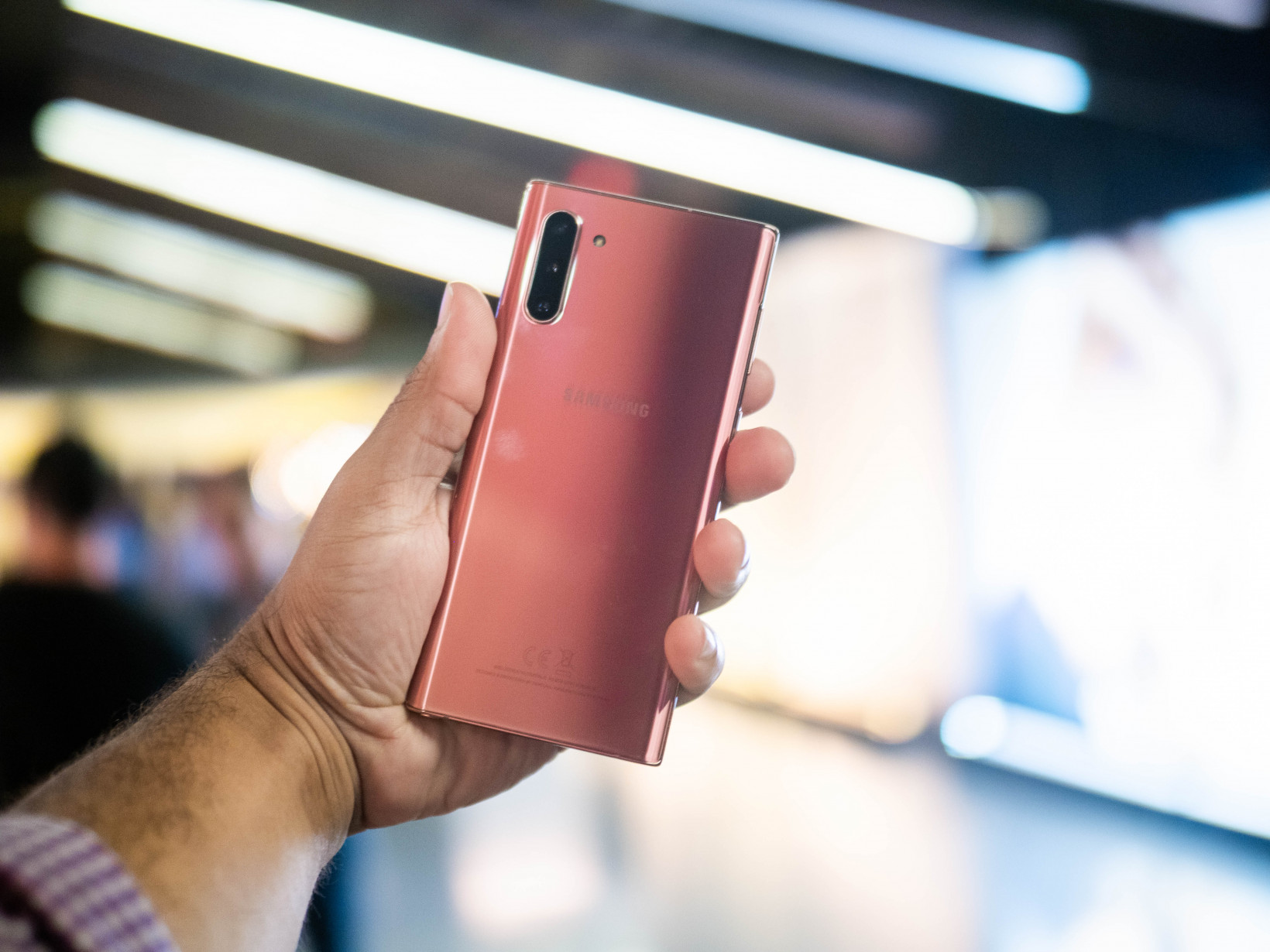
Also fun was the AR Doodle feature. It’s kind of like being able to draw your own Snapchat filters. You can draw a mask on yourself with the S-Pen, or place objects within 3D space. The Note 10+ did a solid job of keeping the objects locked into the environment, despite dim lighting.
But there’s a lot more to the Note 10 than I was able to test in a short session. There’s much more to see: Windows 10 integration, an improved DeX interface, handwriting-to-text, battery life, performance, image quality, and new video editing features. The Note family is no longer just about crazy specs – it’s about what you can do with them. Stay tuned for our full review once we get our hands on a retail unit.
If the phone already tickles your fancy you can pre-order one from Samsung here, starting at $950 for the Note 10 and $1,100 for the Note 10+.
This post includes affiliate links to products that you can buy online. If you purchase them through our links, we get a small cut of the revenue.
Get the TNW newsletter
Get the most important tech news in your inbox each week.

